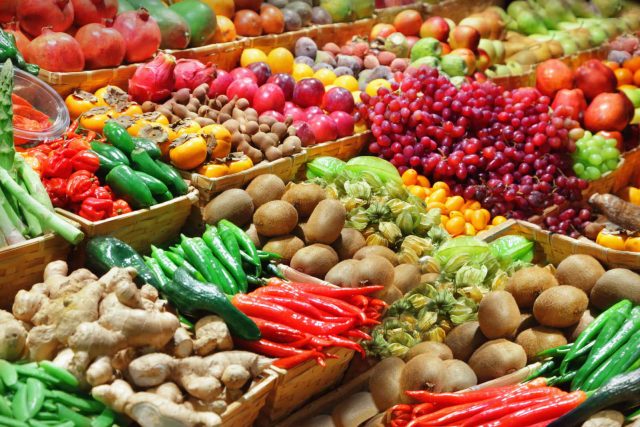rte.ie– The Government has signed off on the post-Brexit trade deal following a specially convened Cabinet meeting this afternoon. Ministers also agreed a €100 million scheme to support the agri-food industry.
Ministers discussed the impact of Brexit on the agri-food and fisheries sectors and what measures were needed to support those industries.
The options discussed included a fleet tie-up scheme from the second quarter of 2021 as a short-term measure for fishermen and a permanent fleet decommissioning scheme to commence later next year.
Schemes to support economic diversification of coastal communities were also discussed.
Tánaiste Leo Varadkar and Minister for Agriculture Charlie McConalogue brought forward a Capital Investment Scheme worth up to €100m for the agri-food sector between now and 2025.
Mr Varadkar said on Twitter that the scheme, aimed at helping food processors modernise and diversify post-Brexit, had been agreed by Cabinet.
He said 175,000 people work in the sector “which is more exposed than most”.
Other support options discussed by Cabinet included competitiveness supports for the food industry; rural development initiatives and local food supply chains.
It was also agreed that exceptional aid may be required to support beef farmers given that market disturbance might cause lower beef prices.
It was noted that the Government, businesses and citizens should intensify efforts to prepare for transition.
Responding to the announcement, IFA President Tim Cullinan said the €100m fund “would not be of immediate help to farmers to address the potential impact of Brexit”.
He said: “Today’s announcement will not help farmers in the short-term. The Minister must be ready to provide immediate support to farmers if markets are disrupted in the coming days and weeks.”
Enterprise Ireland will distribute the funding announced this evening over the next five years.
Earlier, Leo Varadkar said the Irish economy will not be thrown into a “recession” by the Brexit deal between Britain and the EU.
The Fine Gael leader said the deal is “softer” than had been feared – meaning businesses will be protected.
Speaking on RTÉ Morning Ireland, Mr Varadkar acknowledged there will be difficulties as a result of Britain’s decision to leave the EU.
However, he said the situation could be far worse, adding that despite concerns the summer 2016 Brexit vote could cause significant economic problems for Ireland, a recession will be avoided.
Mr Varadkar said the Cabinet would meet to approve a €100m fund “to help the food sector adapt” and a €5bn EU Brexit adjustment reserve fund will also be made available.
“Obviously businesses need to be prepared, the UK is leaving the single market and customs union on 1 January, so we need to be prepared for red tape, for customs regulations that have to be filled in.
“But just think how different it could have been. Four-and-a-half years ago when the UK voted to leave the European Union we were worried about a hard border north and south, we were worried our businesses ,our farmers could face tariffs in trade with Britain.
“And it’s through a lot of political work and a lot of diplomatic work over the past four-and-a-half years that we’ve protected Ireland from that.
“This is a much softer Brexit than the one that we feared four-and-a-half years ago, and I think that’s a positive thing,” he said.
Also today, the Taoiseach said the post-Brexit trade deal agreed between the EU and the UK is a good platform for the Irish economy to recover, particularly in the wake of Covid-19.
Speaking on his way into cabinet this afternoon, Micheál Martin said: “We have avoided what would have been a very significant negative hit to the economy, if we had a no-deal Brexit.”
The Taoiseach – together with Ministers Simon Coveney and Charlie McConalogue – met earlier with representatives of the fishing organisations.
Mr Martin acknowledged the severe impact that the outcome of the Brexit negotiations would have on the fishing industry in Ireland and the disappointment expressed by the representative bodies.
He said the Government was “fully committed” to engaging with the representative bodies and working with the sector and coastal communities in the coming period.
The CEO of the Killybegs Fishermen’s Organisation said he was pleased with today’s meeting.
Sean O’Donoghue said he believes the Government recognises that the Brexit deal creates very significant problems for the fishing industry and that further meetings between government and the sector will take place to look at how to reduce the impact of the deal on coastal communities.
The European Union today gave the green light to its the treaty, clearing the way for it to come into effect in the New Year.
Meanwhile, it has emerged that duty-free allowances will apply for people travelling between Ireland and Britain.
The Department of Finance has said “the default legal position under EU law is that a duty-free regime applies to passengers travelling from an EU Member State, such as Ireland, to a third country.
“Therefore, a full duty free regime will apply for passengers travelling between Ireland and the UK (Britain) from the 1st January 2021.
“This does not apply to travel between the Republic and Northern Ireland.”







